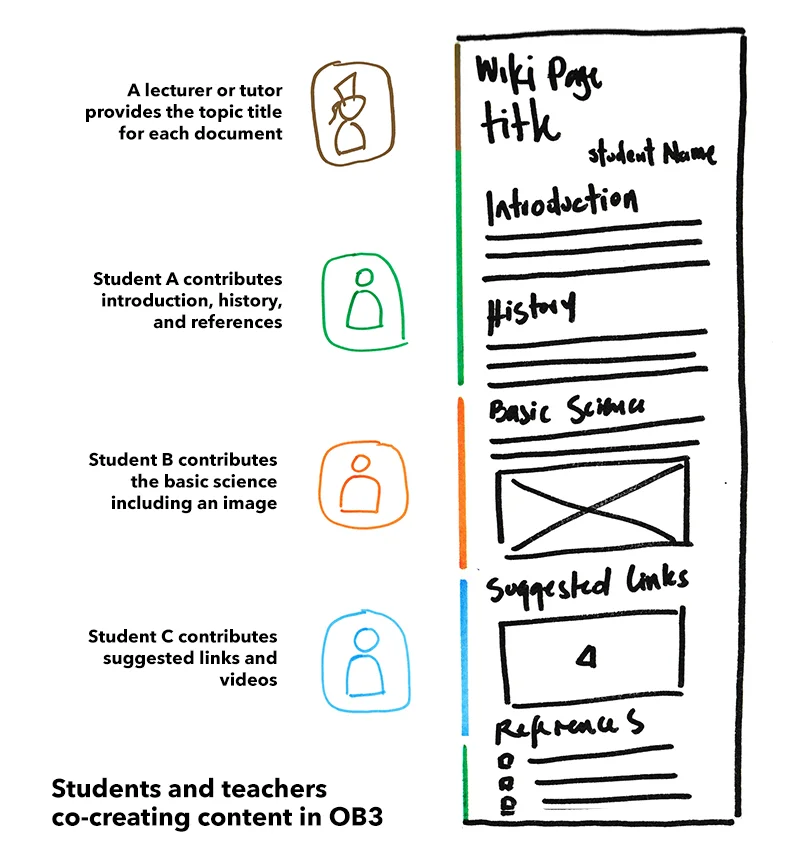Student-led collections on discipline topics
OB3 provides a unified interface and functionality for students, lecturers, and tutors to co-create media-rich document projects, including student-led collections on discipline topics. This type of collaborative activity promotes active learning and engagement in asynchronous online distance education, with projects that can be completed within a single academic semester.
By enabling document sharing among multiple users, OB3 allows students to collaborate and create content together. This gives teachers a platform to provide students with opportunities to contribute meaningfully to course evolution and improvement (See Petsoglou & Stoop, 2020, p. 39).
- A lecturer or tutor provides the topic
- Students add content to the document (headings, paragraphs, images, videos, etc.)
- OB3 highlights each student’s contribution with colour-coded lines
- Content and collaboration are assessed
- Contributed content can become part of curriculum after review
- Collections can be shared with alumni

Students have significant decision-making control within a framework provided by academic staff, allowing them to influence the shaping of an educational resource. After content review and approval, these document collections may become part of the curriculum. Collections can also be shared with alumni (if desired and permitted by an institution's policies). OB3 alumni access is provided at no cost.
The following practices (see Gomez et. al. 2022, 2017) exemplify effective student-staff curriculum co-creation as described by Bovill (2013), who notes that such collaborations "frequently involve a student studying a topic/problem that is of particular interest, and requires them to develop a deep approach to learning and investigation of their chosen topic" (p. 465).